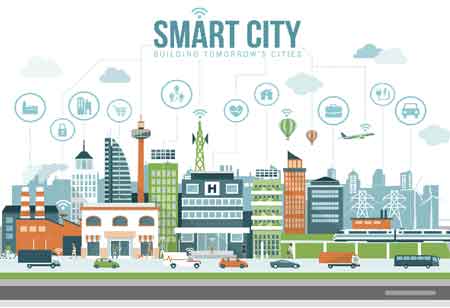THANK YOU FOR SUBSCRIBING
Enabling Smart Cities through IoT
The multitude of sensors out there has given rise to the data revolution, which is improving the quality of life in communities today.

By
Apac CIOOutlook | Wednesday, February 05, 2020
Stay ahead of the industry with exclusive feature stories on the top companies, expert insights and the latest news delivered straight to your inbox. Subscribe today.
The multitude of sensors out there has given rise to the data revolution, which is improving the quality of life in communities today. Needless to say, the drive for smart cities has grown exponentially with municipalities tackling critical challenges in areas like public and environmental health, safety and security, mobility, and more
FREMONT, CA: The digital era is upon us, and technology has become the driving factor. Businesses are continually looking to adopt the latest technological advancement into their workforce to attain optimum results. The Internet of Things (IoT) revolution has been hanging around for some time now and is already delivering on its promises. Solutions are being deployed for waste management, air quality improvement, gunshot detection, asset tracking, fleet management, flood detection, parking management, and more. Besides, niche deployments like monitoring of ultraviolet radiation in warm climates are already in progress. The multitude of sensors out there has given rise to the data revolution, which is improving the quality of life in communities today. Needless to say, the drive for smart cities has grown exponentially with municipalities tackling critical challenges in areas such as public and environmental health, safety and security, mobility, and more.
As challenges continue to rise and become increasingly complex, an entrepreneurial mindset change is in order. It is essential to understand that having city-wide data platforms is the key to delivering optimized public services. This calls for better collaboration between government departments around robust cybersecurity and data governance policies. As forward-thinking jurisdictions realize that some challenges do not obey city boundaries, there will be a rise in the use of cross-regional data platforms and solutions for issues like traffic congestion, resilience, disaster preparedness, and emergency services. This will require a clear cut understanding of the effective delivery of public services and intercity alliances and coalitions.
By 2025, smart cities will have developed significantly, and a lot of this can be credited to the rise of disruptive technologies. IoT devices will be at the core of these smart cities, having been widely deployed as part of public service provision, alongside edge computing, hybrid computing, and advanced analytics. This will lead to an increase in the number of local data centers, which could be an integral part of the resilience and performance strategies. Governments and local bodies will have to put in dedicated efforts to implement the latest best practices and have a roadmap-based approach to emerging standards for cyber-attack detection and recovery. Smart city service providers will be obliged to comply with defined cybersecurity standards as part of the procurement process as cities seek to protect themselves better.
See also: Top IoT Solution Companies





